James Webb telescope going through cooling process
Wednesday, 16 February 2022 16:05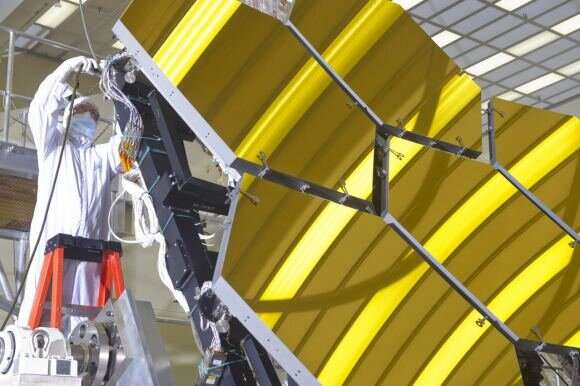
Cooling things down in space is trickier than it might sound. But that is exactly the process the James Webb telescope is going through right now. Getting down to cryogenic temperature is imperative for its infrared imaging systems to work correctly. While the telescope has already started, it will be another few weeks before the process is complete and it's ready to start capturing its first groundbreaking infrared images of the universe.
That might seem like an exceptionally long time to cool something down, but it's all part of the difficulty of doing so in space. The first tricky point is getting out of the sun, which can heat equipment up to blistering temperatures if it is exposed to direct sunlight. Luckily, James Webb has a specially designed sun shield to keep it out of direct sunlight.
The rest of the telescope's instruments have been cooling since the sunshield was deployed several weeks ago.
Op-ed | How America Can Become a Leader in Cleaning Up Space
Wednesday, 16 February 2022 14:00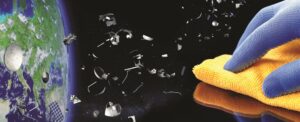
The United States needs to implement a holistic Space Environment Management (SEM) program, and the most important missing element of that program is the development of remediation capabilities that can remove debris from orbit and help clean up the space environment.
Exploring new worlds
Wednesday, 16 February 2022 14:00 Video:
00:02:19
Video:
00:02:19
As part of Agenda 2025, ESA will take preparatory steps towards a sample return mission from the moons of giant planets, and will foster innovation by challenging commercial companies to develop a next generation of competitively priced European space transportation systems.
Space science and planetary exploration have a unique inspirational power for engaging young generations in science, technology, engineering and maths, creating a highly educated workforce for the future.
Collaborating with the European space industry to foster innovation generates economic growth and new revenues, as well as creating new jobs for European citizens. All the money invested in space
Fresh from the ISS: How high school students are leading an experiment on space-made yogurt
Wednesday, 16 February 2022 13:30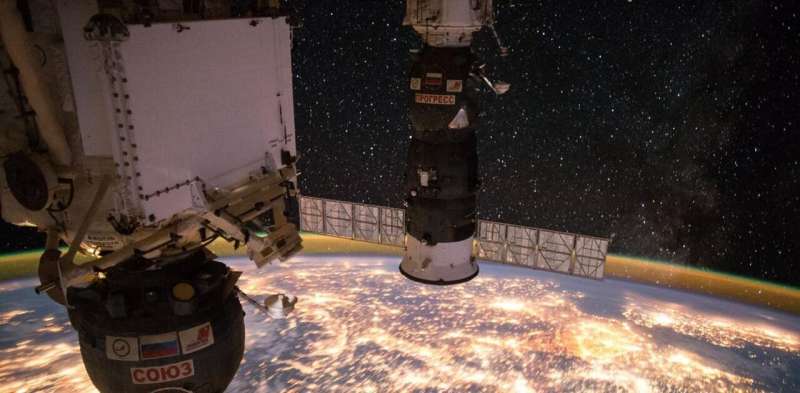
It's probably no surprise that keeping healthy in space is incredibly important. And without the typical resources found on Earth, creative solutions have to be explored.
Right now, some excited Year 10 and 11 students from around Victoria are waiting with anticipation as their space-made yogurt—fresh off the International Space Station (ISS)—heads back to Australia from NASA facilities in the United States.
The students worked with researchers at the Swinburne University of Technology to design an experiment investigating the nutritional values of space-made yogurt. The results could provide insight into how to best help astronauts with vital nutrition during long-haul spaceflight.
The human gut
A critical factor in human health is the overall health of our gut microbiome, which is estimated to host more than 100 trillion bacteria.
Maintaining the health and diversity of these bacteria might be even more important in space than on Earth. In 2019, NASA released groundbreaking results from a year-long study on astronaut twins Mark and Scott Kelly.
In 2016, Scott spent 365 days on the ISS, experiencing reduced gravity, while Mark remained on Earth.
Phase Four wins DARPA contract to test novel propellant
Wednesday, 16 February 2022 12:00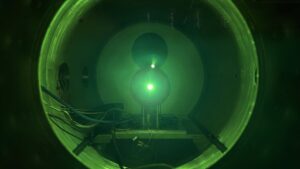
Phase Four won a Defense Advanced Research Projects Agency contract to demonstrate the California startup’s radio frequency thruster technology with a new propellant.
The post Phase Four wins DARPA contract to test novel propellant appeared first on SpaceNews.
How well does concrete work in space?
Wednesday, 16 February 2022 11:40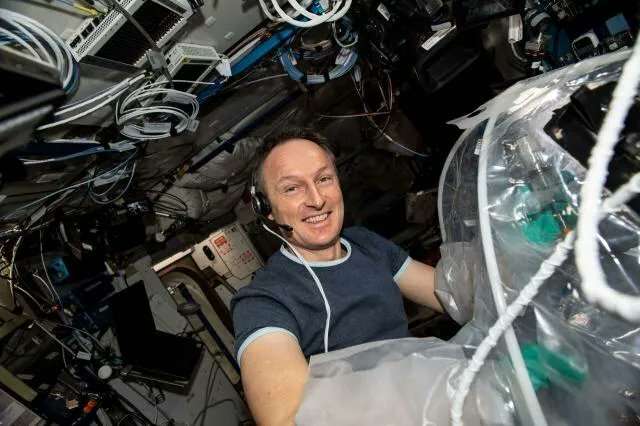
Concrete is not the first material one usually thinks of when exploring space. Nor is it the focus of much cutting-edge research. The most common building material has been used by humanity for thousands of years. But surprisingly, little is still known about some of its properties, due in no small part to the limitations of the environments it can be tested in. Now, this most ubiquitous of materials will be tested in a new environment—the microgravity aboard the International Space Station.
The experiment, part of the "Cosmic Kiss" mission, will have German astronaut Matthias Maurer hand-mixing concrete in microgravity using a specially designed mixer no larger than the size of his hand and a giant inflatable bag. That obviously will not lead to much concrete, but its properties will be particularly telling to scientists.
Students confirm errant rocket's Chinese origin, track lunar collision course
Wednesday, 16 February 2022 11:38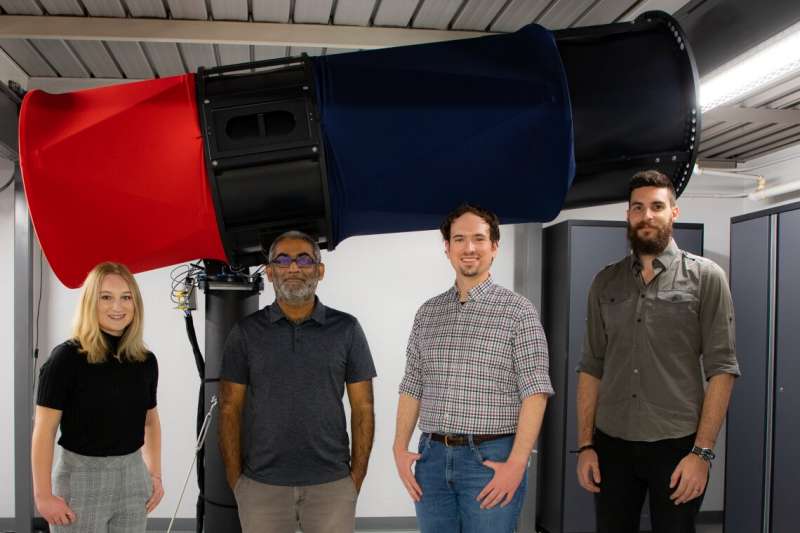
European Union advances broadband constellation despite negative assessments
Wednesday, 16 February 2022 10:52
The European Union is moving ahead with its proposed broadband constellation despite two negative internal assessments.
The post European Union advances broadband constellation despite negative assessments appeared first on SpaceNews.
Decisions from the 2022 Space Summit
Wednesday, 16 February 2022 08:51Press Release N° 4–2022
European leaders today confirmed their ambitious plans to work closely together to accelerate Europe as a world leader in space during a series of high-level meetings held in Toulouse, France.
End of Lockheed bid for Aerojet Rocketdyne may impact space, missile markets
Wednesday, 16 February 2022 04:20 Lockheed Martin, the largest U.S. defense contractor, has dropped its proposal to buy rocket-engine maker Aerojet Rocketdyne, but experts said another suitor could emerge.
The Sacramento-based Aerojet has produced engines for the space shuttle, is working on engines for NASA's next moon rockets and is also developing hypersonic missile systems for the U.S. military.
Lockheed said
Lockheed Martin, the largest U.S. defense contractor, has dropped its proposal to buy rocket-engine maker Aerojet Rocketdyne, but experts said another suitor could emerge.
The Sacramento-based Aerojet has produced engines for the space shuttle, is working on engines for NASA's next moon rockets and is also developing hypersonic missile systems for the U.S. military.
Lockheed said Orbex prepares for rocket launch 'dress rehearsals' as launchpad arrives at test site
Wednesday, 16 February 2022 04:20 The first rocket launchpad constructed in the UK for more than 50 years is now in place at the Orbex test site in Kinloss, Scotland.
The new launchpad - known as 'Orbex LP1' - recently completed an 80-mile road trip from Peterhead to Kinloss on two trucks, accompanied by a police escort. The three-hour journey through the dramatic Scottish countryside during sun, rain and snow was captured
The first rocket launchpad constructed in the UK for more than 50 years is now in place at the Orbex test site in Kinloss, Scotland.
The new launchpad - known as 'Orbex LP1' - recently completed an 80-mile road trip from Peterhead to Kinloss on two trucks, accompanied by a police escort. The three-hour journey through the dramatic Scottish countryside during sun, rain and snow was captured NASA offers up to $200M to help push new technologies to market
Wednesday, 16 February 2022 04:20 Companies with technologies that may advance exploration but need a little extra push to finalize development have two new opportunities to partner with NASA to make it over the finish line.
Through Tipping Point, NASA seeks to support space technologies that can foster the growth of commercial space capabilities and benefit future agency missions. NASA is also offering businesses a chance
Companies with technologies that may advance exploration but need a little extra push to finalize development have two new opportunities to partner with NASA to make it over the finish line.
Through Tipping Point, NASA seeks to support space technologies that can foster the growth of commercial space capabilities and benefit future agency missions. NASA is also offering businesses a chance China to make 6 human spaceflights, rocket's maiden flight in 2022: blue book
Wednesday, 16 February 2022 04:20 China will make six manned space flights in 2022 to complete the building of its space station and see the maiden flight of Long March-6A, the country's first carrier rocket powered by a solid and liquid engine.
Ma Tao, deputy director of the Space Department of the China Aerospace Science and Technology Corporation (CASC), revealed on Wednesday China's rocket launch plan at a press confer
China will make six manned space flights in 2022 to complete the building of its space station and see the maiden flight of Long March-6A, the country's first carrier rocket powered by a solid and liquid engine.
Ma Tao, deputy director of the Space Department of the China Aerospace Science and Technology Corporation (CASC), revealed on Wednesday China's rocket launch plan at a press confer Thousands of new astronomical images highlighted in latest release of AAS WorldWide Telescope
Wednesday, 16 February 2022 04:20 The American Astronomical Society (AAS) has launched WWT 2022, the latest version of AAS WorldWide Telescope (WWT), revealing new data and capabilities and providing an even more powerful astronomy visualization toolkit for astronomers, educators, and enthusiasts alike.
WWT isn't a physical telescope, but rather a suite of free and open-source software that integrates data and images from
The American Astronomical Society (AAS) has launched WWT 2022, the latest version of AAS WorldWide Telescope (WWT), revealing new data and capabilities and providing an even more powerful astronomy visualization toolkit for astronomers, educators, and enthusiasts alike.
WWT isn't a physical telescope, but rather a suite of free and open-source software that integrates data and images from UK candidates make it through to next round of European Space Agency's astronaut call
Wednesday, 16 February 2022 04:20 The window to apply for ESA's astronaut vacancy opened on 31 March 2021 and closed 18 June. This is the first call for new astronauts in over 10 years and the first-time candidates with a physical disability had been invited to apply.
Of the 22,523 valid astronaut applications received by ESA, 2,000 of these were from the UK.
Following a comprehensive screening phase, 1,361 people we
The window to apply for ESA's astronaut vacancy opened on 31 March 2021 and closed 18 June. This is the first call for new astronauts in over 10 years and the first-time candidates with a physical disability had been invited to apply.
Of the 22,523 valid astronaut applications received by ESA, 2,000 of these were from the UK.
Following a comprehensive screening phase, 1,361 people we 
